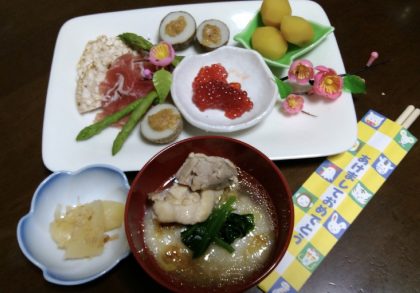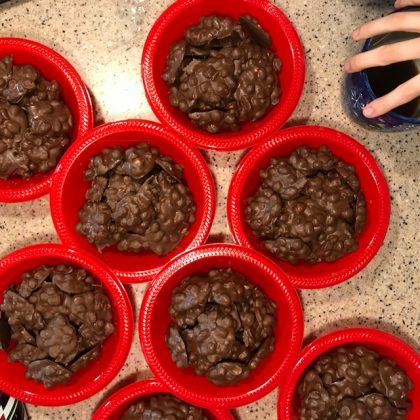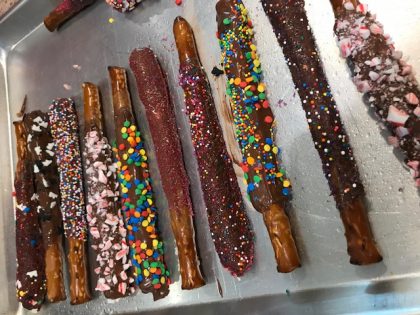Singing “Jingle Bells” in Japanese Opened the Door to Community
By Risa Fukaya – Horizon News & Features Editor
This year I experienced Christmas and New Year’s Day for the first time in America. I stayed with my roommate, Madi Kauffman, and her parents during the Christmas break in Haven, Kansas. There I realized that differences of cultures create universal connection.
Before the break, many people asked me about Christmas in Japan:
“Do you celebrate Christmas in Japan?”
“Yes, we do.”
“How do you celebrate it?” “What are the differences?”
People were curious because they knew that there are fewer Christians in Japan than in America. Japanese people enjoy both Christian traditions and our own. Of the many religious traditions practiced around the world, we are more familiar with the Christian culture.
We enjoy both cultures mainly because polytheism is common in Japan. This does not sound familiar to many in the United States, but we believe that there are many kinds of gods in our world. For instance, when we want god to protect us from flood damage, we go to a shrine with a god of water and pray. On the other hand, when we want to pass any significant exams, we go to a shrine with a god of study.
These days, teachers at school give some opportunities to experience other cultures in classes. For Halloween, kindergarten children create their own costumes in art classes.
Sometimes students sing Christmas songs in Japanese in music classes. “Jingle Bells” is especially famous, and everyone can sing it in Japanese.
Friends here were surprised when I told them that I was not going to go back to Japan during the break. This is because Christmas is a precious opportunity for domestic students to reunite with their families in America. In Japan, however, many people spend Christmas day with their girlfriends or boyfriends.
I was just as curious about Christmas in the United States as people were about Christmas in Japan. A week before Christmas, I saw a lot of presents under the Christmas tree – way more than I have ever seen. We usually give presents to children in Japan, but the Kauffmans gave presents to each member of their family.

The biggest difference is in what we celebrate more, Christmas Day or New Year’s Day. Personally, I thought people celebrate Christmas more than New Year’s Day in America. In Japan, once Christmas Day passes, we play New Year’s music. We also eat a special meal called osechi on New Year’s Day. Many stores sell them, but some people make them by themselves.
Before this year, I had never experienced sharing candies with neighbors. I felt like I could run a chocolate factory because we made so many.

We gave those candies to neighbors, and they also gave us candies they made. One time, two boys who go to the same church to the Kauffmans visited the Kauffman’s house to share the candies and conversation. At that moment, I realized that Christmas brings people together. Christmas connects not only families but also our communities.

On Sunday right before Christmas day, I went to church with Madi’s parents. After we sang some songs from the hymnal, I sang “Jingle Bells” in Japanese in front the congregation. Some people were simply surprised because they did not know that the song is well-known in Japan, and we sing it in Japanese. Because I sang the song, people became interested in Japanese culture, and they asked me why I came here, how the break was going, and what my family was going to do on Christmas Day. These questions were not only the holidays but also about myself.
